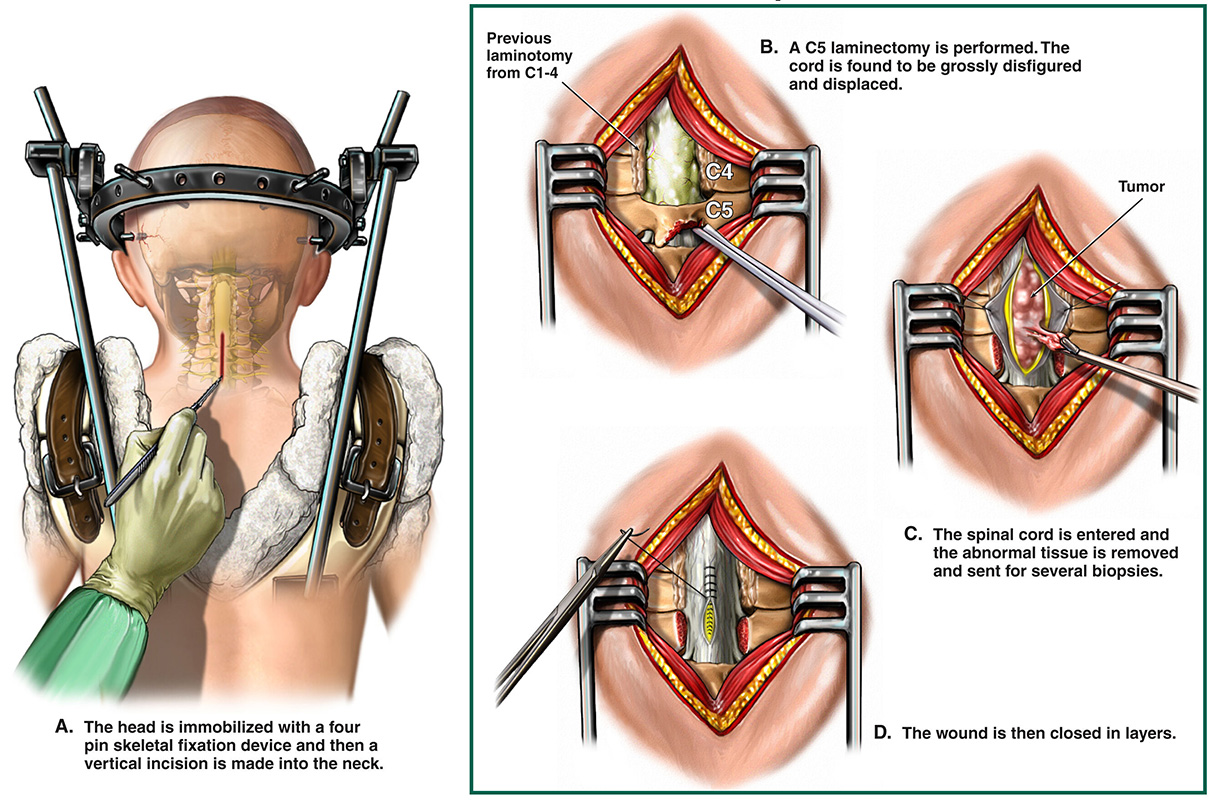Spinal Tumors Treatment
One of the most feared complications of cancer is when it involves the spine. A complex network of bones, nerves and arteries may be affected and, in severe cases, spinal cord compression may lead to paralysis. For these reasons, treatment options for spinal tumors are not always black and white. It takes a deeply experienced team, accustomed to treating complicated cases, to weigh the best — and most individualized — options available to you.
Our physicians are nationally recognized neurosurgery and neuro-oncology experts who use advanced technologies and therapies and are on the leading edge of research and discovery.
Advanced techniques

Spinal tumor treatment options depend on a few factors including:
- Tumor biology
- Tumor location
- Extent of the lesion
Treatment options we offer for spinal tumors include:
- Surgery, including minimally invasive techniques such as endoscopic surgery, spinal cord monitoring and advanced spine instrumentation
- A unique and less invasive approach when performing complex procedures such as vertebrectomy, resulting in less blood loss and faster healing
- Individually customized chemotherapy regimes
- Highly precise radiation therapy
Your care continues long after treatment is completed, and we are committed to helping you and your loved ones manage your recovery.
Pelvic Floor Reconstruction
Some of the causes of pelvic floor dysfunction are cancer and its treatments, spinal cord injuries, aging-related physiologic changes and trauma. Pelvic floor dysfunction is most common among patients with locally advanced spine cancers, gynecological, colorectal and urological cancers, or bony pelvic cancers.
One of the key ways of managing pelvic floor dysfunction is pelvic floor reconstruction. This is an advanced type of surgery that involves using a patient’s own tissue to surgically reconstruct the pelvic floor. It can sometimes be performed at the same time as your cancer surgery, reducing the need for multiple operations. Pelvic floor reconstruction surgery helps reduce the risk of complications and improve quality of life by restoring pelvic anatomy, continence and sexual function, among other things. Learn more about pelvic floor reconstruction.
